- Wednesday 9th February at 3-5pm in the Bournemouth Gateway Building BGG16
- Wednesday 20th March 2-4pm
- Tuesday 10th May 2-4pm
- Tuesday 5th July 10am-12pm
Tagged / BUproud
New BU paper published on Plos One
Congratulation to Dr Francesco Ferraro, who published his latest paper on Plos One.
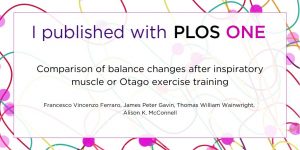
The paper “Comparison of balance changes after inspiratory muscle or Otago exercise training” comes from Dr Ferraro`s PhD where, under the supervision of Professor McConnell, Dr Gavin and Associate Professor Wainwright, he looked at the effects of inspiratory muscle training on balance and physical performance with older adults.
This latest paper looks at the potential benefit of inspiratory muscle training as an alternative to standard balance training intervention. The findings of this pragmatic parallel study support the hypothesis that 8 weeks of unsupervised, individual, home-based inspiratory muscle training, improves balance ability to a similar extent to supervised, group-based balance training in healthy older adults.
The article is now fully available as open access here
https://doi.org/10.1371/journal.pone.0227379
–
Dr Ferraro.
fferraro@bournemouth.ac.uk
FoM Academics – article readership milestone!
Congratulations! Michael O’ Regan, PhD and Jaeyeon Choe,PhD, from the Faculty of Management, published an article on peer-to-peer accommodation platform use in 2017, and has over a short period of two years, become one of the most read articles in the journal Anatolia – becoming one of its top ten “most read” in July 2019.
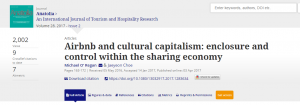
Despite the growing fear-filled sociopolitical rhetoric and moral hand-wringing about peer-to-peer accommodation platforms such as Airbnb, the paper argues that these platforms are under-researched and undertheorized.
Utilising Airbnb as an example, the paper explores this ‘disruptive’ collaborative consumption (sharing) platform within the prism of cultural capitalism to examine the ratio of freedom to estrangement it has created within cultural, economic, political, and consumer worlds.
Thanks to the Organisational Development team at BU, the papers impact was primarily brought about through social media, blog posts and even a link to a page on collaborative consumption in Wikipedia.
Congratulations to the winners of the 2018 Research Photography Competition
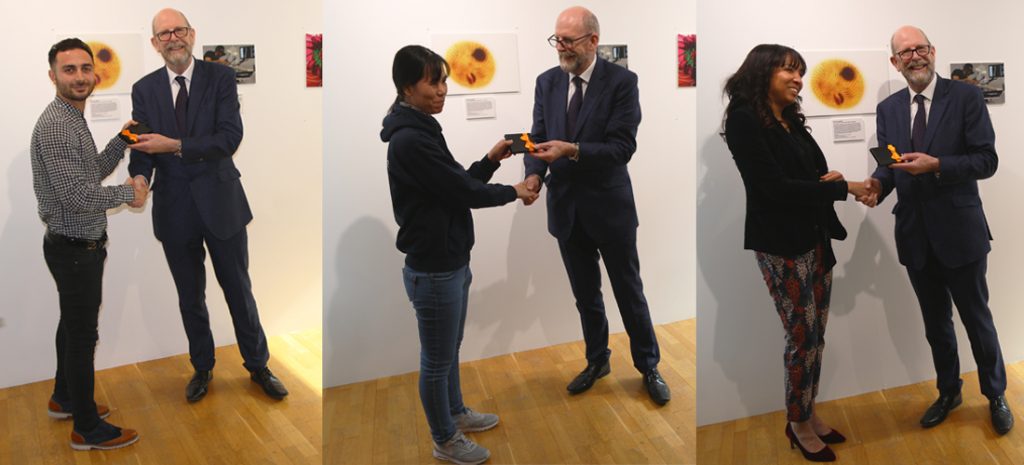
This year marks the forth year of our annual Research Photography Competition at BU. We received 31 submissions from BU academics, students across all levels and professional services.
Sharing research through photography is a great opportunity to make often complex subjects much more accessible to all. This year over 1,500 people from all over the world voted in the competition, showing the power of images to engage and inspire. The research behind photos this year included areas such as archaeology, dementia and forensic science, among others.
The photography theme this year was people. The theme was open to interpretation, with photographers choosing to take an image of their research team, show people who might benefit or be affected by the research or even take a point of view shot. This year’s winners were announced in the Atrium Art Gallery on Tuesday 20 March, with prizes presented by Professor John Fletcher, Pro-Vice Chancellor of Research and Innovation. Details of the winners can be found below.
The photos are currently displayed in an art exhibition in the Atrium Art Gallery which demonstrates the creativity of our BU researchers and the diversity of research being undertaken. It’s a really enjoyable way to find out about research in areas within and outside your discipline or interests, and value the work and efforts. Do drop in and see the images, if you have a few minutes to spare!
The winners of the 2018 Research Photography Competition are:
1st place: Virtual Reality: The best way to train surgeons of the future?
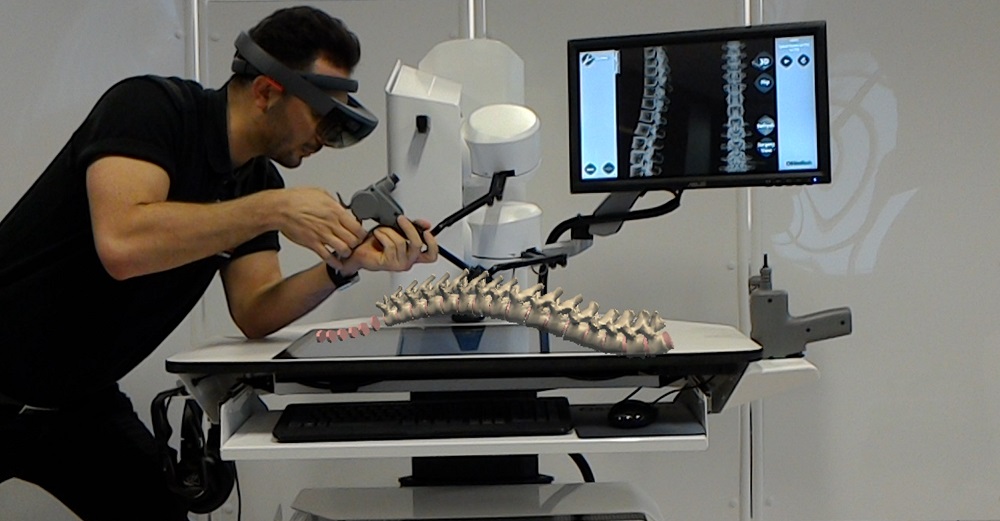
By Shayan Bahadori (Orthopaedic Project Manager) and Mara Catalina Aguilera Canon (Postgraduate Researcher, Faculty of Media and Communication).
In recent years we have seen a decline in theatre operating training time for junior surgeons. Simulators have subsequently been increasingly integrated as training, selection and evaluation tools. To fully formally integrate simulation into orthopaedic training we require evidence that the simulators are valid representations of the operations they seek to replicate. This is one the current research focus at Orthopaedic Research Institute (ORI) and we pursue to validate and develop virtual reality orthopaedic simulators so that they may be adopted into mainstream clinical practice.
2nd place: Soil micro-organisms
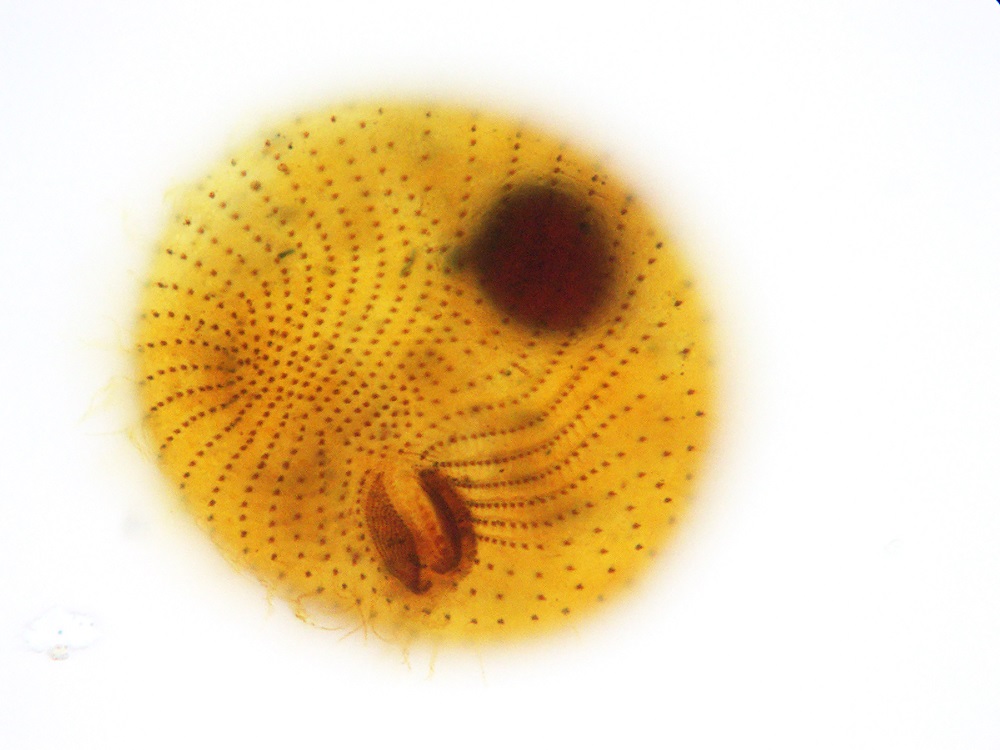
By Hai Luu (Postgraduate student, Faculty of Science and Technology).
Ciliates protozoa are a distinct group of unicellular organisms. They are abundant phagotrophic micro-organisms in soil, playing important role in food webs by controlling the abundance of smaller microbes and recycling organic matter. Ciliates are characterised by some specific traits. Firstly, ciliates are dikaryotic organisms due to having two different cell nuclei; one is responsible for reproduction; the other one carries out cell functions. Secondly, they use cilia for locomotion and feeding. Interestingly, ciliates can reproduce asexually and sexually. From an ecological and functional point of view, ciliates can be used as bioindicators of soil quality – and this is the aim of our research. We are investigating the species richness and abundance of ciliated protozoa in natural and agricultural soils in order to assess their potential as bioindicators of soil quality. Soil quality plays an important role in agricultural production in terms of both quantity and quality, this links closely to quality of human life. This image shows Colpoda cucullus, a terrestrial ciliate commonly found in soils around the world, which was taken as a point of view shot through a microscope.
Research group: Hai Luu, Professor Genoveva Esteban, and Dr Iain Green (Senior Lecturer in Biological Science). Department of Life and Environmental Sciences, Faculty of Science and Technology.
3rd place: The birth of Carnival U

By Dr Nicole Ferdinand (Senior Lecturer in Events Management) and her MSc Events Management student researchers: Diane Nthurima (pictured on the left), Cindy Chen (pictured on the right), Rui Bao, Yi-Hsin Chen, Simona Georgieva, Amelie Lonia, Anh Thu Pham, Taylor Treacy and Sharif Zandani.
The photo is a joint entry by the co-creators of the Carnival U which consists of 10 enthusiastic and one BU academic. Together they are embarking on a journey to create a unique a fusion project. The students are working together with BU academic, Dr Nicole Ferdinand, CEL Learning and Teaching Fellow 2017/18, to create 4 workshops which target other university students interested in Carnival. They will engage in action research as part of the development of their workshops as well as evaluate the overall effectiveness of their co-creation efforts which will form the basis of an academic research paper. The project will also leave an educational legacy for other students wishing to develop event management, marketing and digital literacy skills.
The exhibition will be open until Thursday, 29 March at 2pm, in the Atrium Art Gallery on Talbot Campus. Please do fill in one of our feedback cards in the gallery after visiting the exhibition.
Research Photography Competition awards ceremony today!
 The awards ceremony for this year’s Research Photography Competition is taking place on Tuesday, 20 March from 1-2pm.
The awards ceremony for this year’s Research Photography Competition is taking place on Tuesday, 20 March from 1-2pm.
The winners that you’ve been voting for will be revealed and awarded prizes by Pro Vice-Chancellor for Research and Innovation, Professor John Fletcher.
Come along to the Atrium Art Gallery to see all the photographs in person and find out about the fascinating research behind each one, undertaken by our academics, students across all levels and professional services.
The exhibition is open to all and free to attend so please do come along with colleagues and friends. Nibbles and refreshments will be provided.
Click here to register to attend.
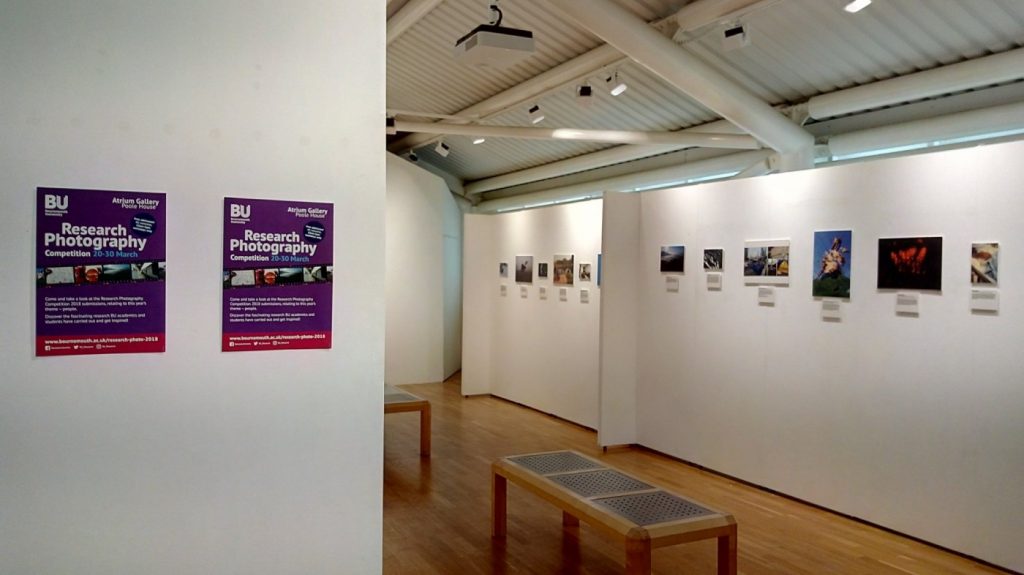
If you’re unable to join us today, the exhibition will be open from 20 March – 29 March (weekdays only) from 10am – 6pm.
Don’t miss out!
Young Life Scientists’ symposium: Frontiers in Musculoskeletal Health, Ageing and Disease
The past Saturday I was given the opportunity to present my pilot study titled “The influence of inspiratory muscle training on balance and functional mobility in healthy older adults” at the Young Life Scientists Symposium (YLS) held in Derby (see related poster).
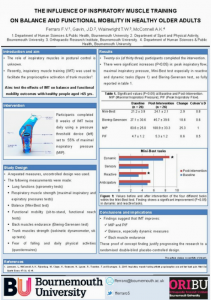
Purpose of the pilot was to gain an understanding of the effect of 8 weeks inspiratory muscle training upon balance and functional mobility outcomes (including Five-Sit-To-Stand, Time Up and Go, Mini-Best test and others) in older adults (65 and over). The results have led to a double-blind random control trial which will be completed by the beginning of 2018.
The YLS is organised by PhD students and Post-Doc’s for other PhD students and early career researchers it aims to give the opportunity to network and discuss research matters via poster and oral communication in a positive and constructive environment.
This year symposium was focusing on three major sections: nutrition, exercises for ageing and metabolic disease in ageing. Speakers from all the UK discussed their works, and I had the chance to collect feedbacks explaining my methods and methodology.
I would like to thank Bournemouth University and my supervisors who helped me to achieve this opportunity.
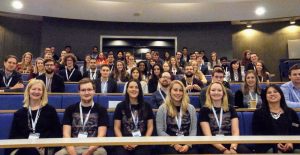
Thank you for reading.
Francesco.











 Expand Your Impact: Collaboration and Networking Workshops for Researchers
Expand Your Impact: Collaboration and Networking Workshops for Researchers Visiting Prof. Sujan Marahatta presenting at BU
Visiting Prof. Sujan Marahatta presenting at BU 3C Event: Research Culture, Community & Can you Guess Who? Thursday 26 March 1-2pm
3C Event: Research Culture, Community & Can you Guess Who? Thursday 26 March 1-2pm UKCGE Recognised Research Supervision Programme: Deadline Approaching
UKCGE Recognised Research Supervision Programme: Deadline Approaching ECR Funding Open Call: Research Culture & Community Grant – Apply now
ECR Funding Open Call: Research Culture & Community Grant – Apply now ECR Funding Open Call: Research Culture & Community Grant – Application Deadline Friday 12 December
ECR Funding Open Call: Research Culture & Community Grant – Application Deadline Friday 12 December MSCA Postdoctoral Fellowships 2025 Call
MSCA Postdoctoral Fellowships 2025 Call ERC Advanced Grant 2025 Webinar
ERC Advanced Grant 2025 Webinar Update on UKRO services
Update on UKRO services European research project exploring use of ‘virtual twins’ to better manage metabolic associated fatty liver disease
European research project exploring use of ‘virtual twins’ to better manage metabolic associated fatty liver disease